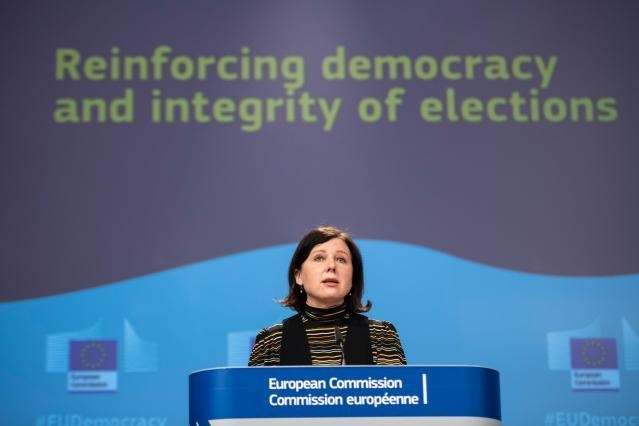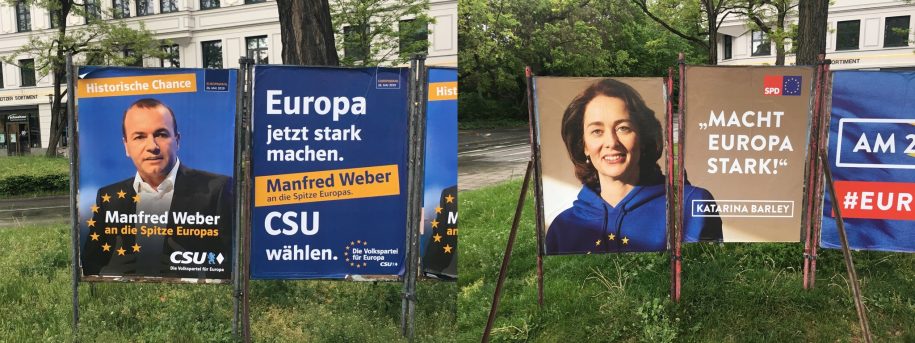Unusually for political discourse, transparency is not considered the holy grail where targeted online political advertising is concerned.

“A kind of placebo”
In a recent debate of the European Parliament’s Internal Market Committee, the Commission legislative proposal concerning targeted political advertising was discussed. Yet in a rare showing, various legislators were unconvinced by the Commission’s strong focus on transparency.
Social democrat MEP Maria Manuel Leitão Marques was quoted stating that she was “disappointed with the lack of ambition of these rules which are little more than transparency”, and that the Commission’s proposals for wider disclosure amounted to “a kind of placebo, water and sugar, as a medicine for an important disease”.
Based on the Commission’s legislative proposal, which was introduced on 25 November last year, all political advertisements would henceforth adhere to three criteria: they would offer contextualising information, contain full disclosure in a transparency notice, and offer additional explanation in case the ad targets selected audience, with the possibility for social media users to opt out of targeting based on sensitive personal characteristics such as religion, sexual orientation, or ethnicity. Thus, the philosophy goes, target groups would know who created and financed the advertisement, how long it is in circulation, and why they are specifically targeted.
Compromise proposal
The recent parliamentary debate demonstrates that not all EU legislators are on board with the proposal’s philosophy of emancipatory transparency. Whereas progressive MEPs are in favour of more restrictive regulation, in some cases favouring an outright ban on targeted political advertisement, many liberals and conservatives feel such measures would be disproportionate.
Indeed, the financial stakes in this segment of the advertising market are not negligible. The Financial Times reports that between May 2018 and November 2021, Facebook earned almost $3 billion from ads about social issues, elections or politics in the US alone. Google, meanwhile, made $810 million from such advertisements. Under the proposal, they would be fined by up to 5 per cent of turn-over in case of a breach of the consent rule.
The financial stakes in this segment of the advertising market are not negligible. Between May 2018 and November 2021, Facebook earned almost $3 billion from ads about social issues, elections or politics in the US alone. Google, meanwhile, made $810 million from such advertisements.
Meanwhile, advocates of so-called “contextual advertising” are making the case for a middle road, in which political advertisements are placed in online environments that are likely to attract the kind of audiences interested in them. This, they point out, could be done without having to track and collect any personal data of internet users. Whereas a ban on targeted political ads would purportedly costs the industry €6 billion, the global contextual ads market is projected to reach the far larger sum of €365 billion by 2025.
Political ads as a European common market
The Commission’s proposal was introduced under a legal basis aiming at further harmonisation of the EU’s common market, as the political advertising market shows clear cross-border features. For this reason, it is the Parliament’s Common Market Committee that first discusses the proposal.
Greens MEP Alexandra Geese pointed out to the Commission that extremist and conspiratorial groups have a very strong online presence, often far greater than centrist groups with a democratic signature. She expressed fear that the proposed legislation would serve to embolden such groups once they would be able to advertise free with users’ silent consent.
However, responsible Commissioner Vera Jourová has represented the issue the other way around: she hails the proposal as a stride towards halting “a competition of opaque and non-transparent methods”.
European digital society in the limelight
The digital political advertising proposal is being discussed at the same time that the Commission launched a draft declaration of digital rights and principles. This rights list, which aims to enhance “digital sovereignty, inclusion, equality, sustainability, resilience, security, trust”, and to improve “quality of life, respect of people’ rights and aspirations” and “contribute to a dynamic, resource-efficient and fair economy and society in the Union”, sets out a long list of fairly general commitments to such issues as better connectivity, accessibility of government information, transparency of algorithms, and creating a safe online environment.
However, in a press statement, Pirate Party MEP Patrick Breyer denounced it as a “hypocritical declaration” that amounts to “smoke and mirrors […] in light of the actual policies of von der Leyen’s Commission”. As evidence, he points at announced forthcoming draft legislation which he describes as enabling “indiscriminate message and chat control on all mobile phones”.


